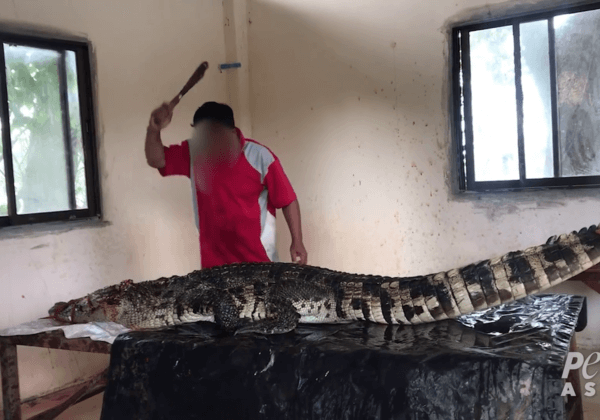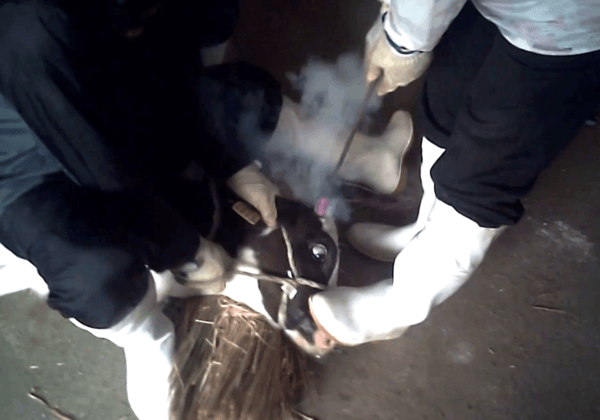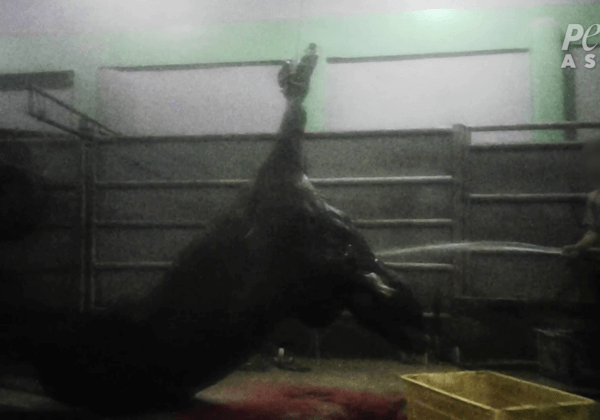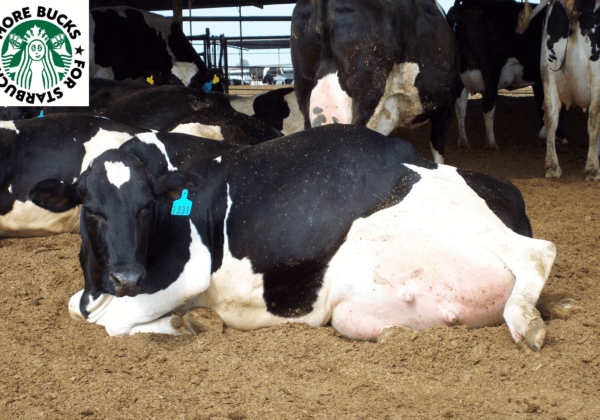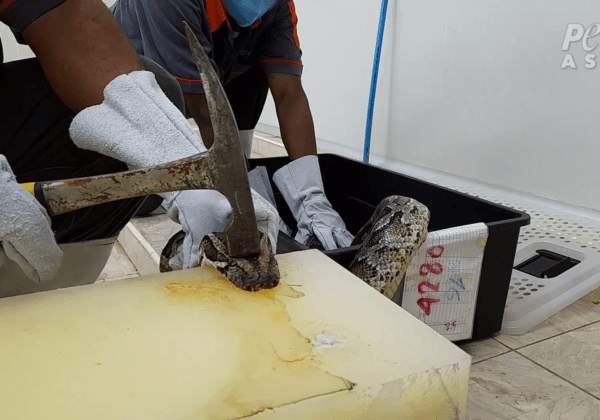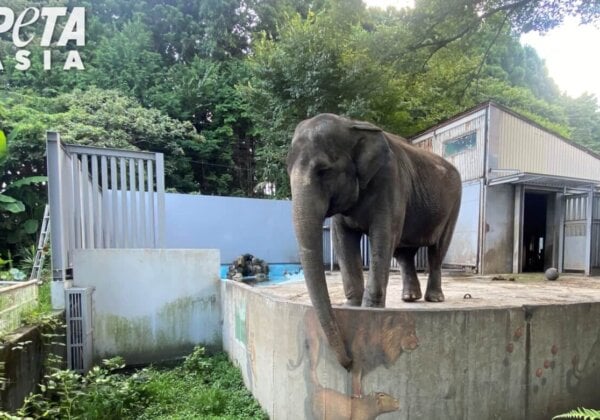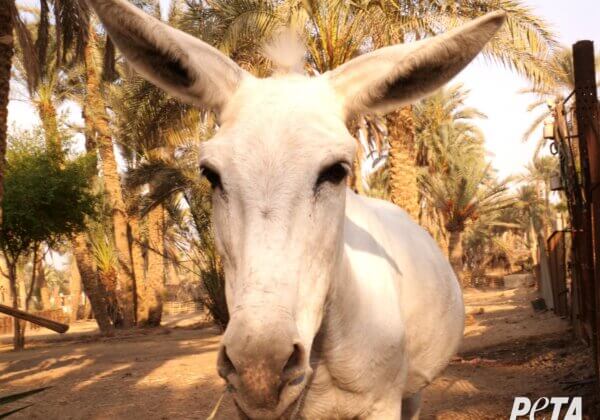Smoking Experiments on Animals
Health officials have known for decades that smoking cigarettes causes disease and that animal tests are poor predictors of these effects. Yet tobacco companies continue to force animals to smoke, even though more effective alternatives exist. Two of the world’s largest cigarette companies still conduct painful, archaic, and irrelevant tobacco tests on animals, even though they aren’t required to and superior non-animal testing methods are readily available.
THE TESTS

Nude rat with tumors and a lesion on his side.
- In a study to test the effects of adding ingredients such as honey, sugar, molasses, plum juice, lime oil, chocolate, cocoa, and coffee extract to cigarettes, experimenters with Philip Morris stuffed thousands of rats into tiny canisters and pumped tobacco smoke directly into their noses six hours a day for 90 consecutive days. The rats were then killed and dissected in order to examine the harm caused to their bodies.
- To test the effects of using high-fructose corn syrup to flavor cigarettes, experimenters at R.J. Reynolds painted cigarette tar on the skin of more than 1,000 mice and rats and then forced them to breathe cigarette smoke. Many of the mice who had tar spread on their skin died during the study. Other mice developed skin tumors or their skin peeled off. All the surviving animals were killed and dissected.
WHY THEY DON’T WORK

- Different animals have different reactions to toxins, and animals in laboratories aren’t exposed to cigarette smoke in the same way as human smokers.
- The link between tobacco and lung cancer in humans was hidden for years because experiments on animals did not show this relationship.
THE ALTERNATIVES

- Manufacturers can effectively use in vitro (non-animal) technology, human-based research methods, and the existing body of knowledge from human epidemiological and clinical studies about the health concerns associated with smoking.
- None of these cruel animal experiments would even be legal if conducted in Germany, Belgium, the U.K., or several other countries, where tobacco product and ingredient tests on animals have been banned.
- Philip Morris’ German laboratories have even developed in vitro methods that use human lung tissue to test their products, but the company’s U.S. counterpart still continues to conduct cruel and less reliable animal tests.
THE VICTIMS
 © Doctors Against Animal Experiments
© Doctors Against Animal Experiments
- Mice and rats are the most commonly used species in these tests.
- Mice and rats are highly intelligent mammals who feel pain, fear, loneliness, and joy, just as we do. They become emotionally attached to each other, love their families, and easily bond with human guardians.
 Adapted from PETA US
Adapted from PETA US
What You Can Do
To quote the US National Cancer Institute, “There is no safe tobacco product.” We already know from clinical research—and from basic common sense—that smoking is bad for us. If you still use tobacco products, seek out companies such as Imperial Tobacco, Nat Sherman, and Santa Fe Natural Tobacco that have official policies against testing their products on animals.
Find out more about alternatives to animal testing.

